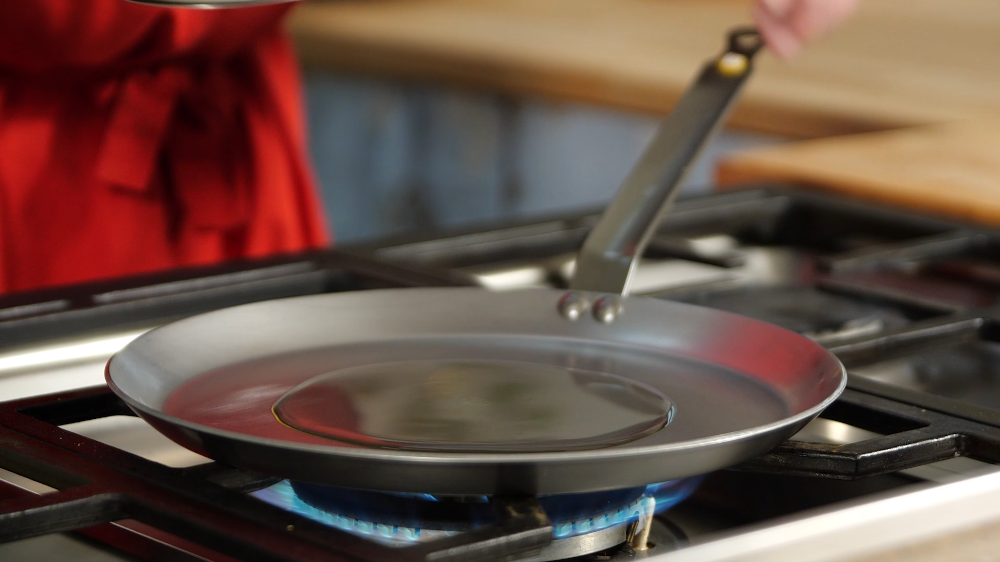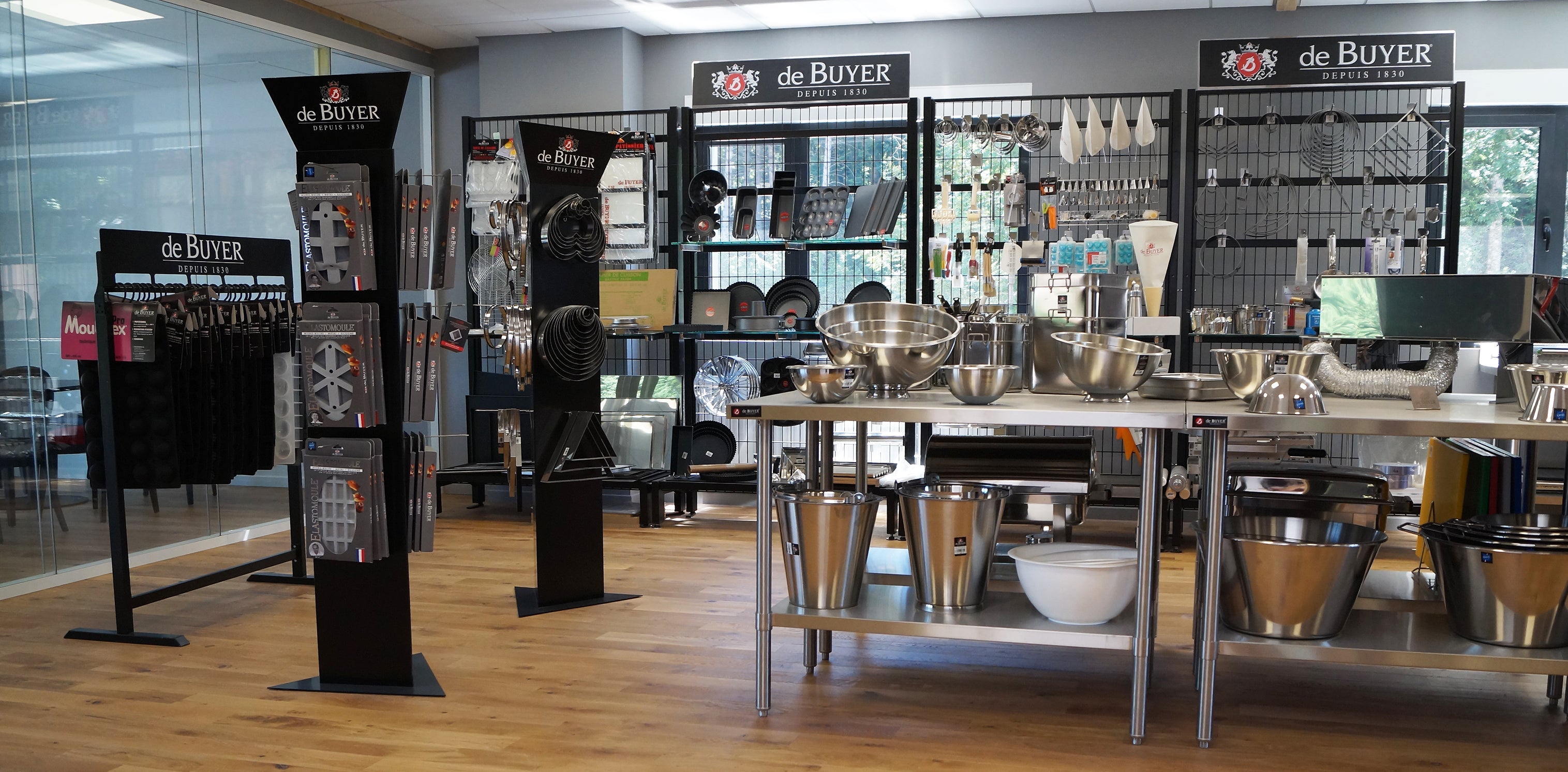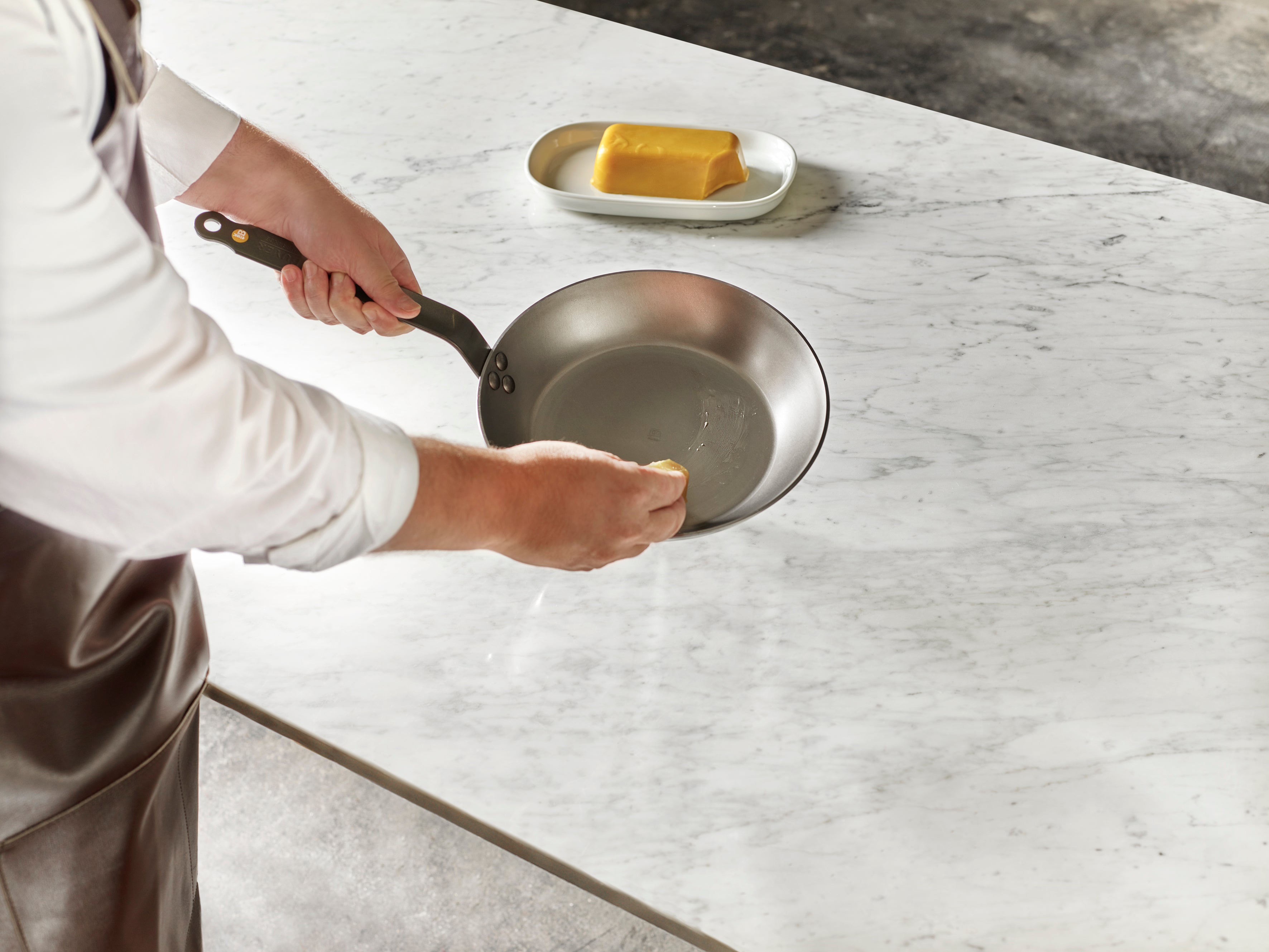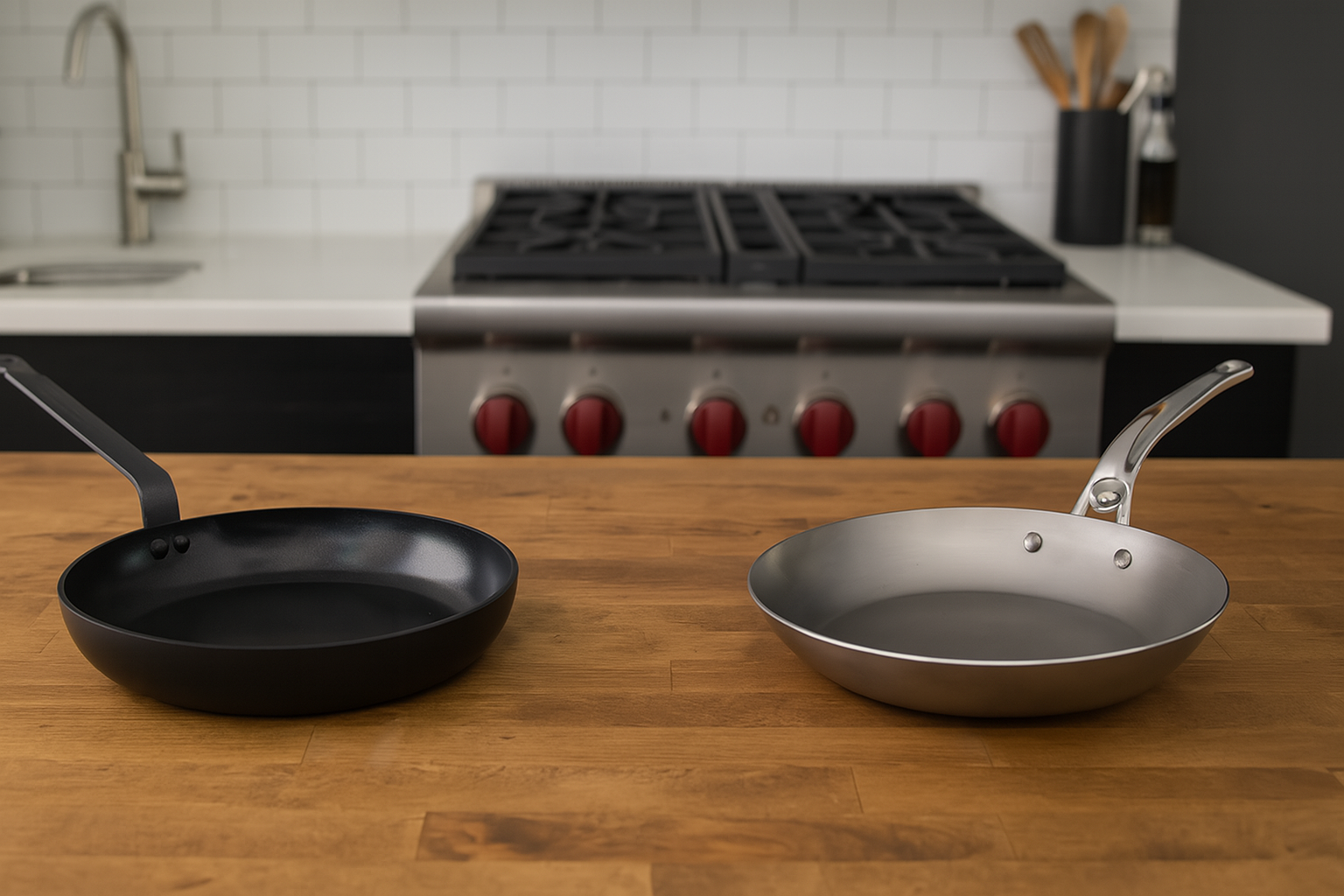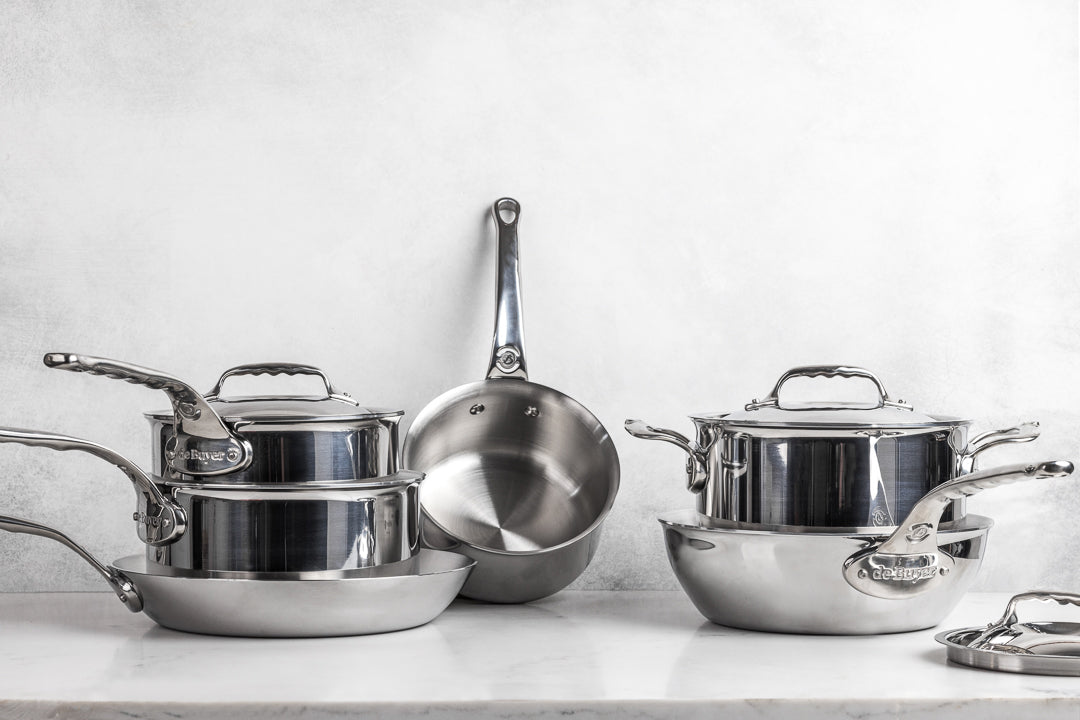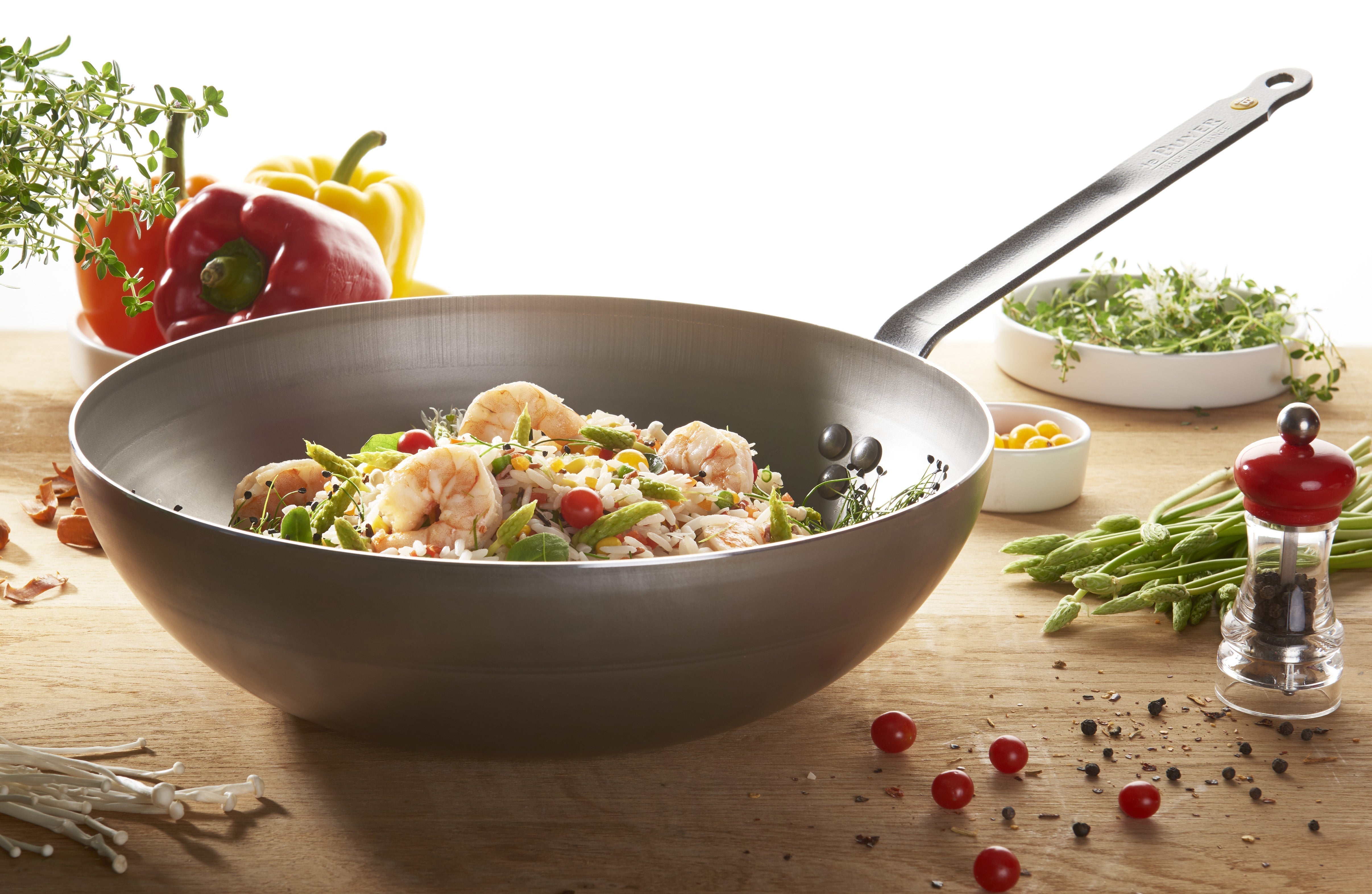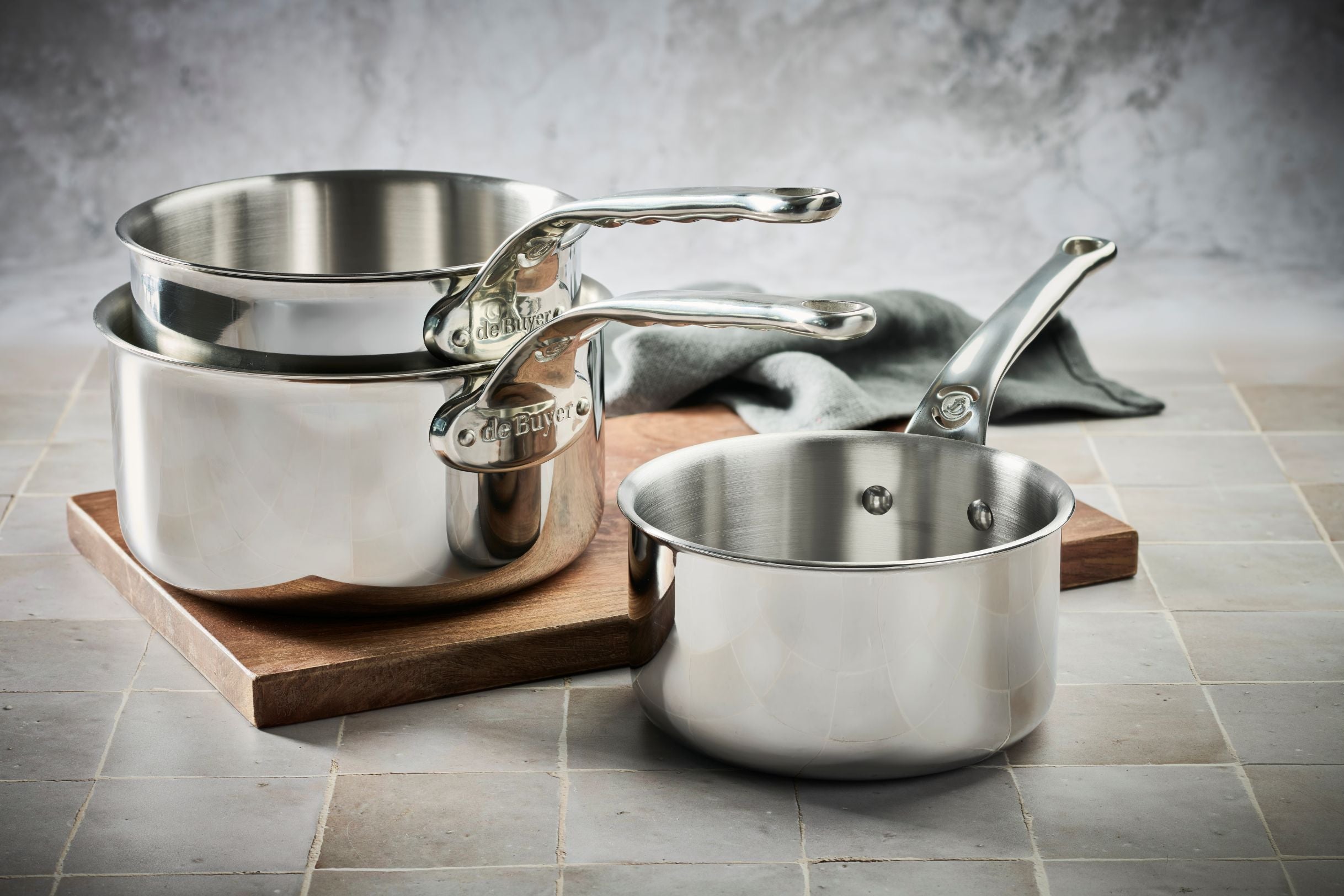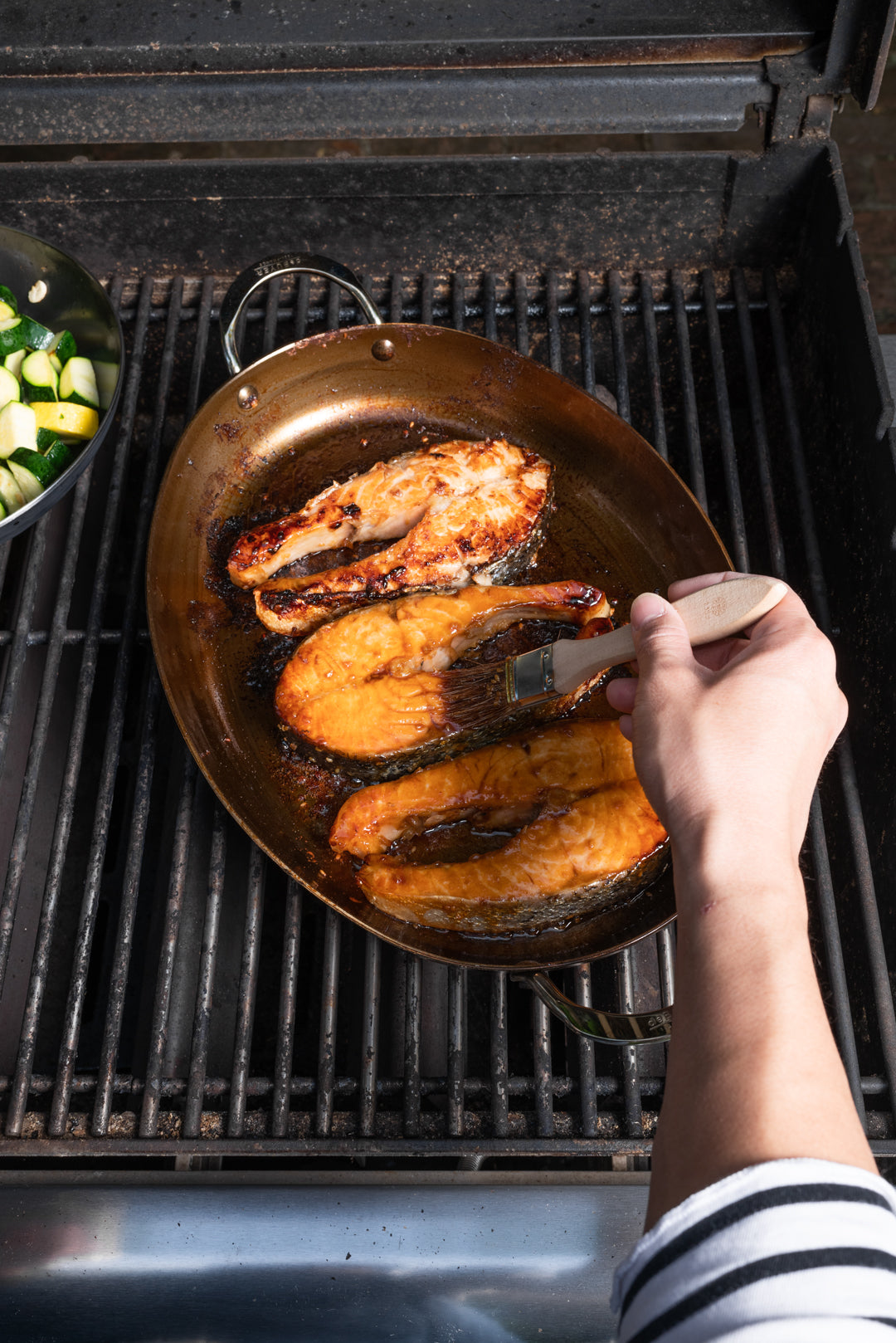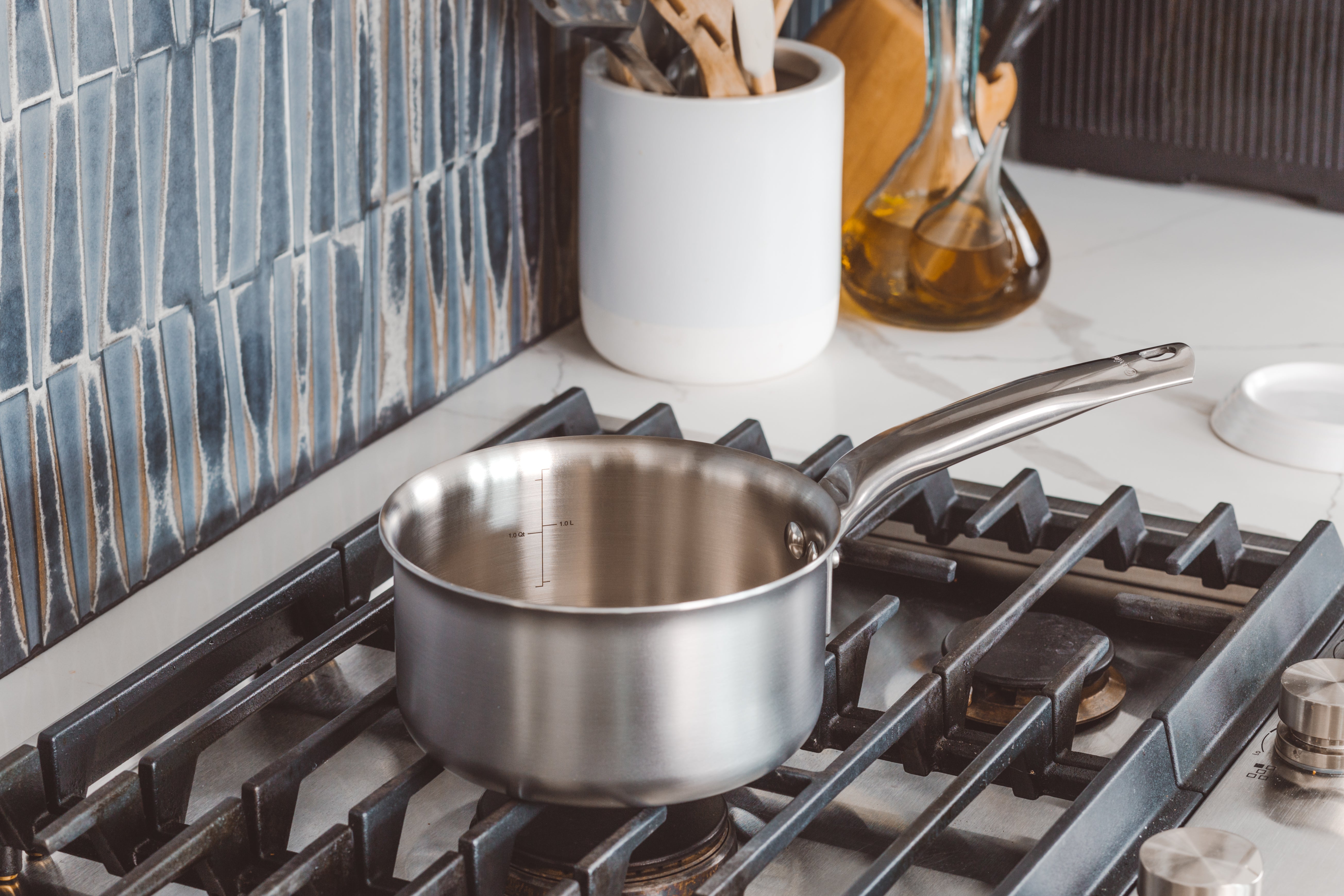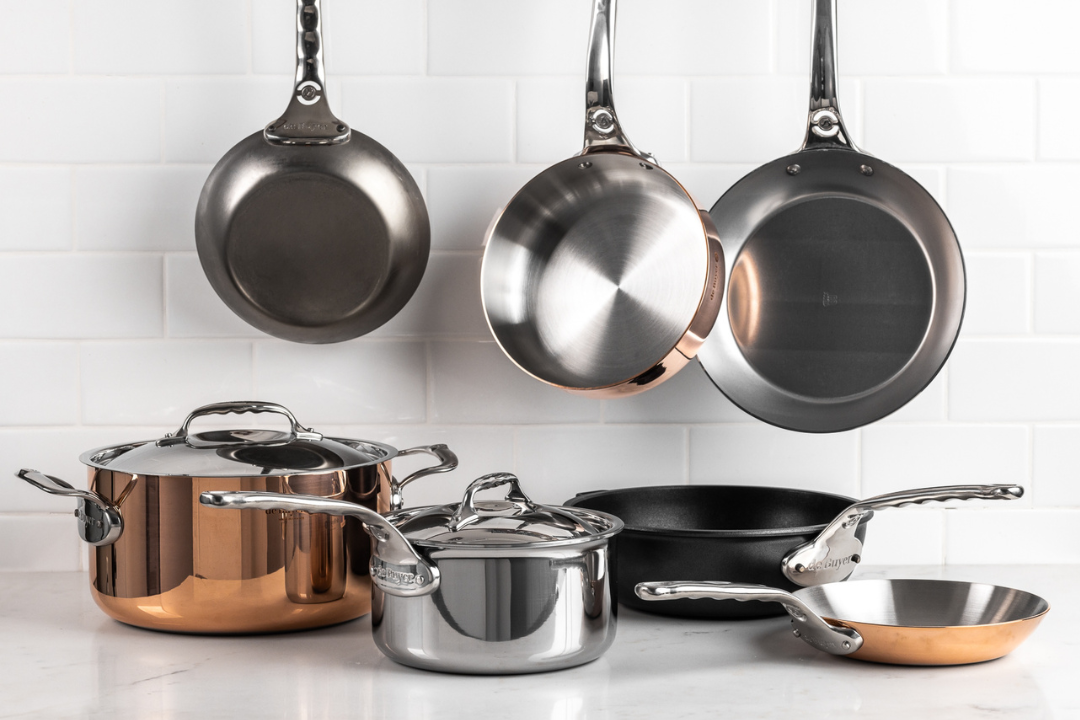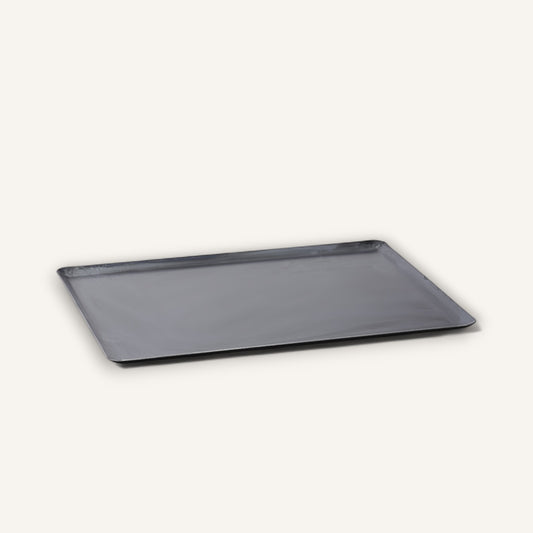A chef is only as good as their worst tool. At de Buyer, we empower chefs and home cooks with the information they need to improve their culinary expertise, and we’re here to inform you that quality pots and pans aren’t the only thing that matters.
Proper, quality utensils not only make cooking easier but can also help maintain your expensive stainless steel cookware. This article will help you make informed choices and guide you toward the best utensils for stainless steel.
Why Choosing the Right Utensils Matters
Knowing your utensils' best (and worst) properties allows you to use the proper tools at the right time and maintain them effectively. Some kitchen utensils are more likely to scratch your stainless steel pans, some are more likely to melt on you, and some can splinter during food preparation.
Effective food safety practices demand a comprehensive understanding of your kitchen tools and gadgets. Armed with the right utensils and the correct information, you can whip up high-quality, delicious foods with ease.
Best Utensils for Stainless Steel Cookware
Stainless Steel Utensils
Using stainless steel utensils with stainless steel cookware is like coming home—it’s just natural. The durability, resistance to corrosion, and compatibility with high-temperature cooking make stainless steel tools an excellent option.
Pros
- Heat resistant
- Aesthetically matches your cookware
- Incredibly durable and corrosion-resistant
Cons
- Can’t be used on nonstick cookware
- May cause small scratches to stainless steel
- Not dishwasher safe
If all of your utensils were stainless steel, you’d be set for years, assuming you don’t use pans with a nonstick coating. Stainless steel tools can also cut through the protective patina on a Dutch oven if you use it enthusiastically enough.
Be mindful of these two realities, and you’ll be fine. Due to steel's amazing compressive strength, you’re better off using steel tools that lift heavier foods. For example, a stainless steel cooking fork, large spatula, and slotted spoon will serve you well.
Wooden Utensils
Wooden utensils are elegant tools we are used to seeing in kitchens. They will not scratch stainless steel cookware, and the right wooden tool will be surprisingly heat resistant. Some also find wooden cooking utensils more comfortable to use since they weigh very little.
Pros
- Works on all types of cookware (including nonstick pans)
- Light and maneuverable
- Gorgeous, classic look
Cons
- Not dishwasher safe
- More involved maintenance
- May stain
Acidic foods are a big culprit in staining wood tools. To avoid damaging your cookware, be mindful about what you’re cooking and with what. Not all wooden tools are eco-friendly, so look for sustainably sourced wooden spoons and tools like the kind sold at de Buyer.
Bamboo Utensils
Bamboo is in a class of its own, partly due to its rapid popularity rise in recent years. The bamboo craze isn’t without cause since this material is incredibly sustainable and has natural antimicrobial properties.
Pros
- Works on all types of cookware (including nonstick pans)
- Budget-friendly
Cons
- Not dishwasher safe
- More involved maintenance
- May stain
Both bamboo and wood tools must be oiled occasionally to keep the material in good shape.
Silicone Utensils
100% silicone utensils are beyond suitable for stainless steel cookware due to their heat resistance, non-scratch properties, and ease of cleaning. Silicone and nylon are uniquely suited to drag along the curves of a cooking surface.
A silicone spatula can scrap up sauce, gravy, and reduction more effectively than any other tool.
Pros
- Works on all types of cookware (including nonstick pans)
- Heat resistant
- Dishwasher safe
Cons
- Easily damaged by knives
- Will bend under heavy weight
Failing to purchase 100% silicone tools will lead to warping and melting under high heat. Low-quality silicone stands no chance against heated stainless steel pots and pans. Check the fine print of your cookware set or tool before purchasing.
Nylon Utensils
Nylon is a type of plastic that is well suited to cooking. It can be molded into various shapes and maintains a unique flexibility. Flipping pancakes with a nylon spatula is a wonderful experience.
Pro
- Works on all types of cookware (including nonstick pans)
- Non-reactive material can withstand acidic foods
- Dishwasher safe
Con
- Low heat resistance
- Less aesthetic
A nylon utensil will melt if left in a hot cast iron, carbon steel, nonstick, or stainless steel pan. However, this doesn’t mean that you should ban nylon tools from the kitchen. Instead, use them deliberately as durable tongs or a spatula with reactive foods.
Choosing the Right Utensils for Your Cooking Style
Picking the perfect utensils goes beyond just the material. You need to consider your cooking style and personal preferences. We’ve assembled key points to guide your decision.
-
Cooking Techniques: Pick utensils that are the best as the methods you use most. A dedicated soup maker should prioritize a quality ladle. Opt for durable tools for high-heat cooking and gentle, more flexible ones for delicate tasks.
-
Ergonomic Designs: Choose handles that offer a comfortable grip and reduce strain during prolonged use. Consider the weight and balance of utensils to enhance control and precision. This is largely a personal preference. Don’t be afraid to try out different options.
-
Ease of Use: Select tools that are easy to maneuver, especially for complex or quick tasks. Don’t reach for the stainless steel spatula when you’re making caramel in a nonstick pan. Choose a simple silicone spatula that will easily scrape the rounded edge of your frying pan or skillet.
-
Maintenance Considerations: Prioritize dishwasher-safe options for convenience, or be prepared for hand-washing most of your tools. Choose materials that you’re prepared to maintain. Don’t purchase wood or bamboo tools if you’re not prepared to oil them every once in a while.
Finally, know that the quality of your utensils matters greatly. A cheap wood utensil set from a store like Amazon may splinter into your sauté pan after the third use. A premium stonewashed metal utensil purchased from an authentic French cookware supplier like de Buyer will never let you down.
Transform Your Kitchen with de Buyer
It’s imperative to select the right tools for stainless steel cookware. Whether you’re solely cooking with stainless steel or you use a variety of materials, you should be confident that your utensils will work well.
Every chef’s exact needs and preferences are different and we strive to offer insightful resources for all. To recap, this article has covered the following points and more.
-
Stainless Steel Utensils: Durable and heat-resistant, but may scratch cookware and are not suitable for nonstick pans.
-
Wooden Utensils: Gentle on all cookware surfaces, lightweight, and aesthetically pleasing, but require more maintenance and can stain.
-
Bamboo Utensils: Sustainable and naturally antimicrobial, suitable for all cookware, but also require regular maintenance and can stain.
-
Silicone Utensils: Non-scratch, heat-resistant, and dishwasher-safe, but can be easily damaged by knives and may bend under heavy weight.
-
Nylon Utensils: Flexible and non-reactive, suitable for various cookware, but have low heat resistance and may melt if left on hot surfaces.
At de Buyer, we provide high-quality kitchen tools and cookware made in France using only the best materials. Our range of long-lasting utensils is designed to flawlessly complement stainless steel cookware.
Don’t hesitate. Discover the best-in-class utensils and tools today.


